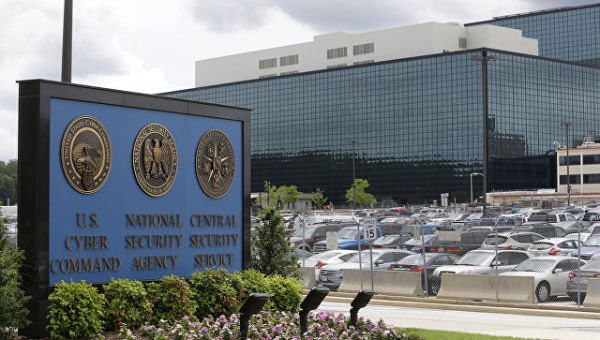The US National Security Agency is creating a specialized center that will deal with the protection of artificial intelligence. And protection from it.
The US National Security Agency has announced the creation of a specialized hub in which it is planned to consolidate all areas of the agency's activities related to artificial intelligence.
Dubbed The Artificial Intelligence Security Center (depending on the context, it can be translated as the "Artificial Intelligence Security Center" or as the "AI Security Center") will become a "focal point" for such areas as the identification of insights in intelligence activities, the development of methodological recommendations for rapidly developing technologies and the creation of "tools identification of risks in the field of AI security".
This was recently stated by General Paul Nakasone, speaking at the National Press Club in Washington.
The new unit is planned to be located in the Center of cooperation in the field of cybersecurity of the NSA. One of the stated goals will be to help businesses "recognize the threats to their intellectual property and ... prevent and neutralize them."
According to Nakasouni, the NSA's AI division will cooperate with a variety of organizations associated with the Pentagon, the intelligence Agency, academia and foreign partners.
General Nakasouni also heads the US Cyber Command. Both the NSA and Cyber Command have recently published research on the use of AI in the near future.
These works showed a "clear need" to focus on AI security, and, as General Nakasouni noted, the NSA has a special responsibility in this regard. The key purpose of the agency is to coordinate all the security systems of the country. As Nakasouni put it, the NSA has already formed an extensive system of communications in the military-industrial complex.
American business is spending more and more on the procurement and development of generative AI technologies, but, according to Nakasouni, the same is done by the strategic opponents of the United States, who "quickly develop and implement their own AI solutions, so we expect that they will soon begin to explore and try to exploit vulnerabilities in the AI systems of the United States and allies."".
AI security, from the general's point of view, is to protect artificial intelligence systems from "finding out, doing and revealing what they shouldn't," as well as block cyber attacks on them and ensure that "hostile parties outside the United States do not have the opportunity to steal advanced American developments in the field of AI".
According to Nakasouni, today the United States holds a leading position, but it is absolutely not worth considering them as a matter of course.
"Considering what today's AI models are, it is difficult to imagine that the revolutionary technologies of any one economy would remain unattainable for another for a significant time. A good example is the same generative models that all large IT companies have appeared with a difference of several months," says Alexey Vodiasov, technical director of SEQ.
"There is, of course, a purely theoretical probability that someone (and not necessarily the United States) will suddenly create something that will change all the rules of the game, but so far this probability is small and belongs rather to the realm of unkind fiction," he summed up.
Who will run the new hub and how large it will eventually become (that is, how expensive for taxpayers), the general did not specify.

